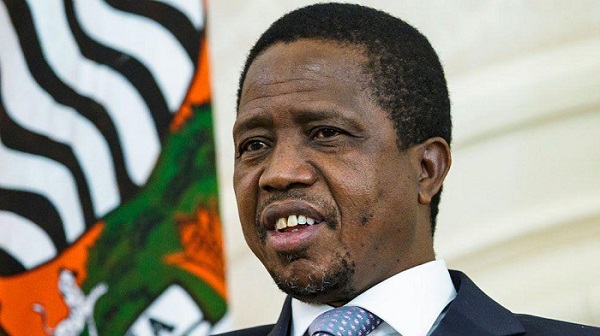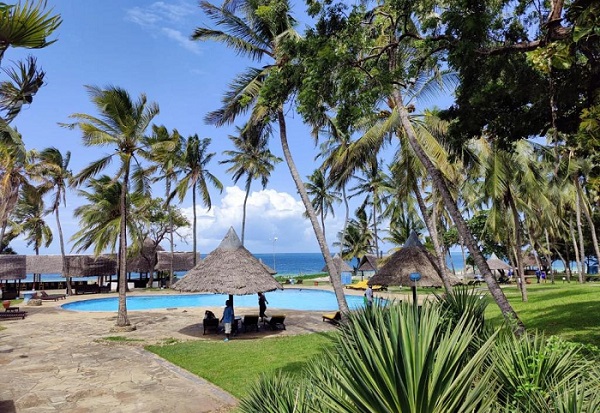by LUKE ZUNGA
JOHANNESBURG – SOUTH African President Cyril Ramaphosa has received a letter dated 7 July 2025 from the American President, Donald J Trump, setting the tariff rate of 30% on goods from South Africa to the United States (US).
My advisory and economics team is of the view that BRICS and African countries should not impose counter tariffs because tariffs are paid by local importers.
BRICS are member states comprising Brazil, Russia, India, China, South Africa, Egypt, Ethiopia, Iran, Saudi Arabia, and the United Arab Emirates (UAE) respectively.
Rather, the state’s industrial agencies should assist citizen companies to set up factories to manufacture what they import from the US, in the medium to long term.
The BRICS plus countries must set up a team to coordinate what countries import from the US which can be sourced among themselves in a coordinated way and set up a clearing house.
What are tariffs? Tariffs are charges or import duties or fees levied on goods imported into a country from another country.
The tariff is based on the country of origin. There are four types of tariffs – specific tariffs, compound tariffs, ad valorem and tariff-rate quota.
The receiving importer pays the tariff fees to the tax revenue system of the final destination of the goods in question.
Depending on the price structure the importer usually passes the cost onto the customers.
Tariffs target the importer. The higher the tariff the more the imported goods will cost to customers who buy that product in the importing country.
The purpose of such tariffs are to discourage the importer from buying from that exporting country.
There are four main objectives of the US tariffs.
The first objective of such tariffs are to stimulate local industry in the US, increase production and create more jobs.
The imported goods are more expensive, making locally manufacturing more competitive as they bear no tariffs.
This forces the American importer to source or manufacture goods locally as imported goods are more expensive that the importers’ customers will resist buying them in favour of less expensive goods manufactured locally.
With more orders the local manufacturer will increase production.
Note that the exporter has not changed the price but will find that orders from the US are reducing as the goods no longer sell as fast, or the orders are reduced or completely eliminated depending on the product, the prices and availability of competing substitutes in the US.
That affects the exporters and importers business. The exporters might be forced to reduce production, reduce labour and close if no alternative markets are found in the short term.
The long-term scenario is unpredictable and perhaps negligible because markets adjust themselves over time.
The second objective is to force companies to invest and manufacture in the United States.
The United States is the biggest market in the whole world. For this reason everybody is affected by US tariffs. Many factories produce for the US market and have to rethink.
If the product is significant to the factory producing it and the markets are mainly in the US then it is best for the company to set up the factory in the US.
When produced in the US there are no tariffs. In the letter to President Ramaphosa, the US president indicated that those who want to establish factories in the US will be fast-tracked.
It also stimulates American companies to produce non-patented products in the US to fill the gap which was previously for imports. This stimulates higher US production.
The third objective is to raise money to wipe out America’s yawning trade deficits and borrowings of US$37 trillion, on the backdrop of a US$30 trillion gross domestic product (GDP) from which taxes close to US$8 trillion a year are raised.
Hitherto US annual expenditure exceeded tax collections, which resulted in persistent borrowings.
Import tariffs will increase revenue collections without working for it. Tariffs are additional levies on the American citizens arising from placing orders from businesses accessing the American market.
There are many companies who sell their manufactures in the US. Tariffs are paid by American consumers, through higher prices.
The fourth objective is to persuade American companies operating abroad to come back to manufacture in the US.
There was a significant range of companies which set up factories in China and Asia Pacific to gain a lower cost of production.
Depending on the price structures these companies may lose profit and market share by producing outside the US.
Donald Trump is extending a call to American companies to come back home.
In the short term the American economy will heat up inflation caused by higher prices on imported goods across the board, such as food, clothes and cars etc.
Tariffs hurt Americans but in a different slideshow than countries producing imports into the US.
In the medium term, the Americans themselves will pay and extinguish the national debt, not foreigners.
Over time the Americans will benefit from increased investments by companies who establish factories in the US to avoid tariffs, reduce debt and perhaps influence lower tax rates.
South Africa exports cars, agricultural products and minerals to the US. South African exports will be affected as the American importers may change their sources depending on the tariff rates for different countries.
Car manufacturers such as BMW, Mercedes Benz, Nissan and Toyota have factories in the US and will most likely reduce production in South Africa, turning to their factories in the US to produce US requirements.
The African Growth and Opportunity Act (AGOA) is technically withdrawn. African manufacturers who depended on AGOA are thrown into turmoil.
Manufacturers in South Africa are white owned companies, because the country, like all African leaders, refuses to finance startups.
Companies which will be forced to reduce production will most likely retrench workers, increasing unemployment of black workers.
Noone saw it coming. South African policy of courting the US to attract foreign investors will be dented, in respect of those foreign investors who were to produce in South Africa for the US market.
The policy of attracting or relying on foreign investors has failed to grow the economies of South Africa and other African countries.
Unfortunately, the same governments refuse alternative models on the table, such as raising their own capital to advance citizens to enter manufacturing in bigger numbers.
This is necessary than before in view of the African Continental Free Trade Area (AfCFTA) arrangements.
The African continental market requires participation of black citizens of this continent, but politicians pay lip service.
In the first place Africa and BRICS must set up a centralized clearing house to enable countries to pay each other more easily.
– CAJ News




